Looking for ways to entertain
your kids on the cheap end? Here's
a roundup of free and nearly-free
events that your kids are
sure, to love. It includes
workshops, summer camps, story
times and more.
01 The Home Depot Kids Workshops
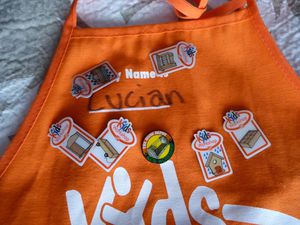
Bring out the do-it-yourselfer in your child by taking part in
the
free Kids Workshops
at Home Depot. Workshops take place
the first Saturday of each month
from 9 a.m. - noon at all store
locations. You child
will receive a free orange apron, and a
new pin for their apron, each
time they complete a project.
Adult participation is required.
These events are popular, so
be sure to register ahead of time
to guarantee your spot.
02 Lowe's Build & Grow
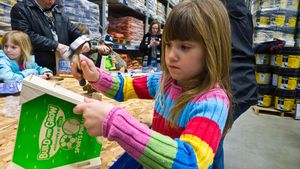
Lowe's is another good source for free D-I-Y kids'
projects.
Clinics are offered on a bi-weekly basis
from 10am-11am, and
all building materials and tools
are provided. Spend an hour
with your child, and come away
with a cool project that you
built together.
03 Michael's Kids' Club
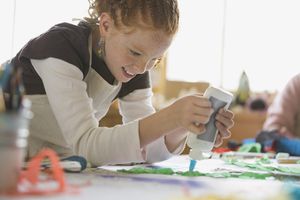
must-do. It features a new craft
each Saturday. Just drop in
anytime between 10 am and noon;
pay $2; and you're free to
shop while they create. There's
also Camp Creativity in
the
summer. It runs Mondays,
Wednesdays and Fridays, and
costs $3 per session, less if you
buy three sessions at a time.
Check the store calendar for more
free Make-It-Take-It events
that you can participate in as a
family.
04 Barnes & Noble Storytimes

Foster a love of books in your child by
participating in one of
Barnes &
Noble's free story times, which include a story and a
creative activity to go along
with it. Themes and times vary
from location to location, so
check with your nearest store for
specifics.
05 Pottery Barn Kids In-Store Events
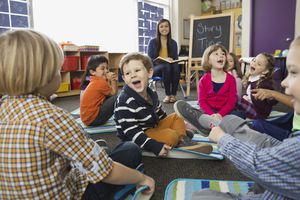
With a summer reading program, story times,
character meet
and-greets and more, there's always
something fun (and free)
to do at Pottery Barn
Kids.
06 The Apple Store Youth Workshops and Summer Camp
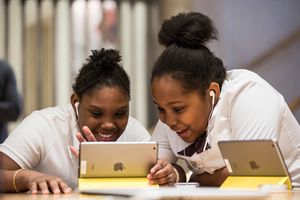
Sign your kids up for a free one-hour workshop,
where they
can learn how to do things like
make movies or record
music. There's also a free three-day
summer camp for kids
age 8-12, Choose between coding
and robotics, moviemaking
or storytelling. Camp tends
to fill up fast. Sign up to be
notified
when
registration opens, so you
don't miss out.
07 Lego Store Free Mini Builds
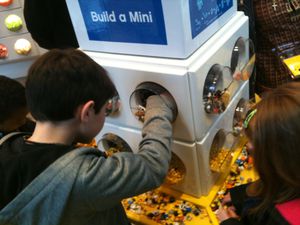
Each month, Lego Stores offer a free building event
for kids
ages 6-14. Register in
advance to claim a spot for your
kids (Registration opens the 15th of the month for
the next
month's event). They'll get to
build the monthly model, and
take it home with them. That
means a free activity and free
Lego bricks!
Note: You now need
to be a Lego VIP member to
participate in the monthly
builds. It's free to sign up.
08 Kids Bowl Free

free games of bowling
each day this summer, at participating
bowling alleys. This doesn't
include the shoe rental, but some bowling alleys allow you to purchase an unlimited
shoe rental pass.
09 Free Museum Admission
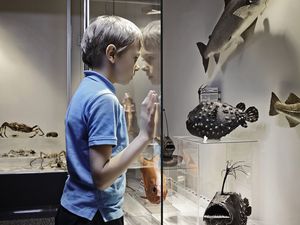
If you're a Bank of America or Merrill
Lynch customer, be sure
to take advantage of their Museums on Us
program. Just flash your credit/debit card and I.D. at the admission
counter to get free admission to hundreds of museums on the first full weekend
of every month. The list of
participating locations includes children's museums, history
museums, botanical gardens and more. Use this program to cover your adult
admissions, so you only have to pay for your kids. Some of these museums
already offer free admission for kids, making for a totally free outing once a
month.










